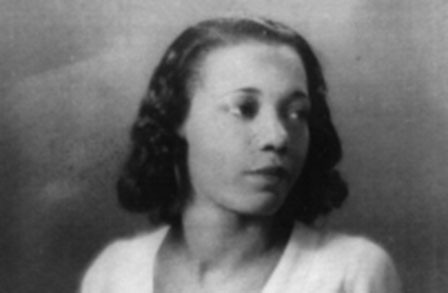1906 - 1995
By: Sarah Capano | Date Added:

Helene Johnson, born Helen Johnson, was an African American poet who is associated with the Harlem Renaissance literary movement. She was born in Boston in 1906 and raised in Brookline, Massachusetts. After her father left shortly following her birth, Johnson grew up with her mother’s family. A good portion of her life was spent living in her grandfather’s house along with two aunts and several cousins. It was one of her aunts who gave her the nickname Helene, which she would use as her published name. She studied at Boston University, during which time she was awarded first place in a short story writing competition hosted by the Boston Chronicle. This brought to light Johnson’s skills as a writer. With the encouragement of her cousin Dorothy West, who is now known for her work as a prominent author, she left school and the two moved to New York City in 1927. It was there that the two of them became active in the Harlem Renaissance. Although Johnson continued her studies at Columbia University, she never received a degree. She published poems in a number of journals including Vanity Fair, Opportunity: A Journal of Negro Life, and Fire. The final poem that she published appeared in the magazine Challenge: A Literary Quarterly in the mid-1930s. Johnson got married to William Hubbell in 1933, with whom she had one daughter, and stopped publishing her works shorty after. Her poems would continue to appear in anthologies throughout the years, including The Poetry of the Negro (1949), American Negro Poetry (1963), and Voices from the Harlem Renaissance (1976). Many of Johnson’s poems were written about the hardships that people who lived in black areas in urban societies faced. She was described by Ronald Primeau as a poet who “combines an expression of unquenchable desires with realistic description of ghetto life and a discovery of the roots of her people”. Her most notable work, the poem Bottled, was published in Vanity Fair in 1927. It contained unconventional rhythms and innovative slang, a unique piece of work that highly contributed to her popularity. Despite all of her success as a poet, Johnson was never concerned with whether her poems would be able to be published. Instead, she wrote mainly for her own interest and her love of writing. Even though she stopped publishing her work in the 1930s, Johnson would continue to write one poem at least every day for the remainder of her life. Story derived from mypoeticside.com.
click hereShare your thoughts on this story with us. Your comments will not be made public.
Email
Copyright ©2016 - Design By Bureau Blank